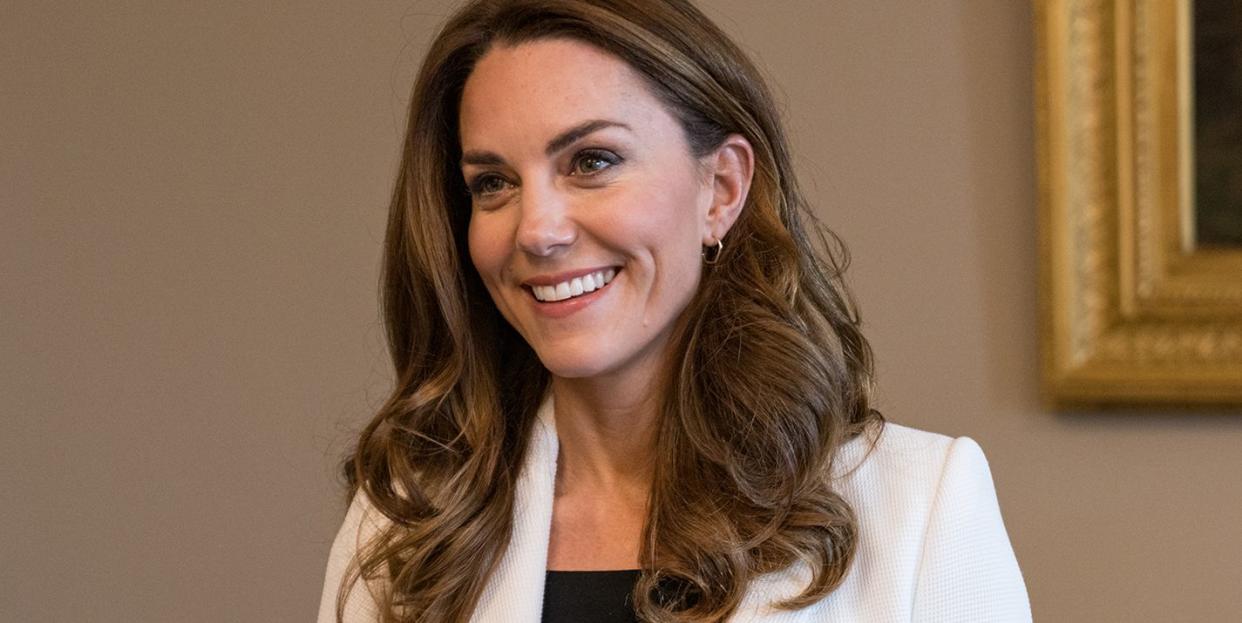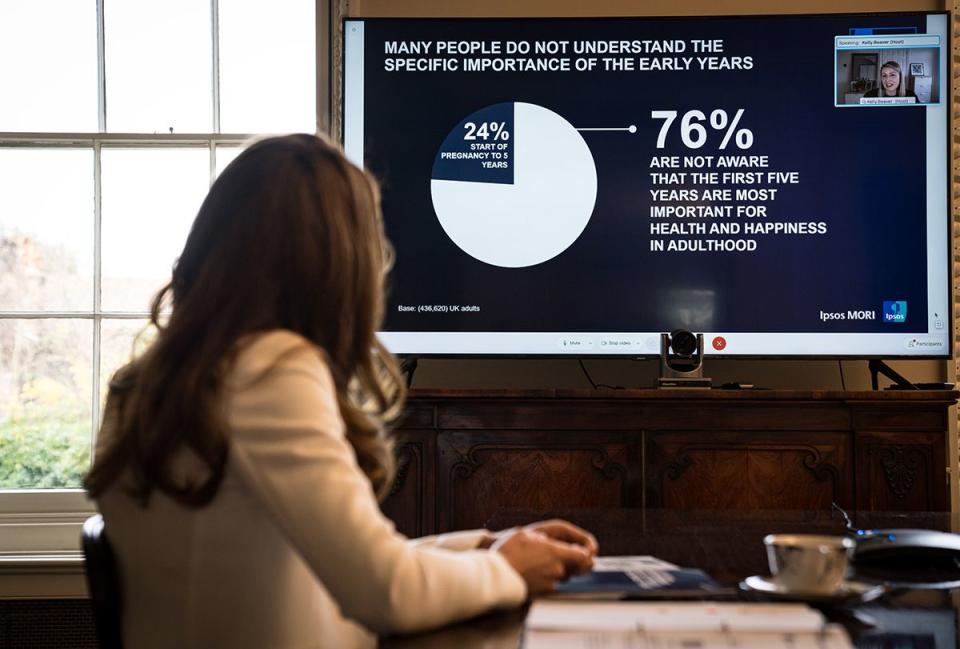Duchess Kate Reveals the Survey Results That Will Shape Her Future Work

After launching what Kensington Palace called a "milestone" moment in her charitable work, Duchess Kate is ready to reveal the results of her "5 Big Questions" survey after almost one million people responded to her call for action.
The findings reveal what the palace is calling "unrivaled insight" which will help shape key areas of focus in the Duchess of Cambridge’s focus on early childhood development and how it shapes the rest of our lives.
On Tuesday, November 24, Kate received details of the results during a virtual briefing at Kensington Palace with Kelly Beaver, an executive at research company Ipsos MORI, which she partnered with for the surveys.
In photos shared by her team, a keen duchess can be seen in an ivory blazer studiously taking notes alongside detailed printouts she is keeping in a binder.

The announcement of these insights follow nine years of work by Kate which has included dozens of engagements across the U.K., convening a group of experts, as well as privately studying the effects of difficult childhood experiences in early childhood years and how they are often the root cause for issues such as poor mental health, family breakdown, addiction, and homelessness.
With the results (see below) now collected, a Kensington Palace spokesperson tells BAZAAR.com that "next year, The Duchess will announce ambitious plans to help elevate the importance of early childhood." Her goal being to bring positive change to the lives of children under five across the country and to also reduce the need for late intervention, which in England and Wales alone amounts to around $22.7 billion in government funding.
During an online forum on Friday, November 27, Kate will give a speech before discussing results of the research and the crucial role the early years can play in shaping our futures.
"Over the last decade I have met people from all walks of life," she is expected to say. "I have seen that experiences such as homelessness, addiction, and poor mental health are often grounded in a difficult childhood. But I have also seen, how positive protective factors in the early years can play a crucial role in shaping our futures."

Her speech continues, "The early years are not simply about how we raise our childrenThey are in fact about how we raise the next generation of adults. They are about the society we will become."
The Duchess of Cambridge’s words will be heard by a number of key individuals—including professors, paediatric doctors, and senior clinicians—who will all play a role in the duchess’s future work in this field.
Kate launched her "5 Big Questions on the Under Fives" survey to praise from the early years sector, visiting six cities across the U.K. to speak to people about their experiences and opinions of the earliest year’s of children’s lives. The survey was commissioned by the Cambridge’s Royal Foundation.
In what Kate and market research company Ipsos MORI are calling their "5 Big Insights," the results (which were taken from 527,898 global responses and 435,141 individuals in the U.K.) have generated the following points:
Exactly 98% of survey participants believe that a child’s future is not pre-determined at birth and that nurture is essential to lifelong outcomes. However, only one in four recognized the importance of the first five years of a child’s life.
The reality of life makes it difficult for parents to prioritize their wellbeing (90% of people see parental mental health and wellbeing as critical to a child’s development but only 10% of parents mentioned taking the time to look after their own mental wellbeing when asked how they had prepared for the arrival of a baby). "Worryingly," the survey results shared by Kensington Palace reveal, "Over a third of all parents (37%) expect the COVID-19 pandemic to have a negative impact on their long-term mental wellbeing."
Seventy percent of parents feel judged by others and half of those admit that it negatively impacts their mental health.
Parental loneliness has increased during the pandemic from 38% to 63% due to being cut off from friends and family. The increase in loneliness for parents is more apparent in deprived areas.
Across the U.K., 40% of parents feel that community support has grown substantially during the pandemic (although this is 7% lower in the most deprived areas).
Alongside Kate’s survey launched in January, information was also drawn from a "nationally representative" face-to-face survey of over 3,700 people, a survey on the impact of COVID-19, in-depth research on the importance of the early years, and ethnographic research with 12 families.
You Might Also Like
